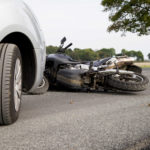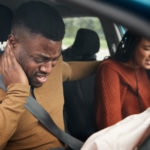
Ok, we’ve all been there. At some point, we have lost our cool behind the wheel. Maybe we yelled, cursed, maybe we even wished the worst possible fate on other drivers and promised that by Grabthar’s Hammer, we shall be avenged. But what causes road rage?
Is it just a simple matter of, hey we are upset? Or is road rage triggered by something a little deeper; some hardwired human emotion that renders us helpless and at the mercy of our emotions? What could it possibly be that makes road rage, so wife spread, and so easy to succumb to?
Before we delve into what causes road rage, and how to prevent the causes of road rage, let’s learn a little more about this ugly side of drivers.
What Is Road Rage?
Simply put, road rage is the violent anger and aggression that is usually triggered by stress and frustration that leads to aggressive driving. It is a display of anger a motorist exhibits in order to intimidate or release frustration.
The levels of road rage can start with simple verbal insults and rude physical behavior and escalate to purposeful dangerous driving and physical violence.
Road rage statistics paint an awful picture of aggressive driving on our streets.
- 66% of traffic fatalities are caused by aggressive driving (NHTSA).
- 37% of aggressive driving incidents involve a firearm (AutoVantage Club).
- 12,610 injuries and 218 murders have been attributed to road rage over seven years in the United States (SafeMotorist).
Road rage might seem like a common and sometimes almost irrelevant mood that we all experience sometimes, but the truth is, the action we take when under the spell of road rage can have a lasting impact on our lives.
What Causes Road Rage?
We all know the reasons many drivers, including even ourselves, may say they experience road rage. Our immediate inclination is to blame the other driver, to blame the road system, to blame the whole world… but we rarely, if ever, blame ourselves.
Could it be possible that you, in some small way, are responsible for your road rage?
If you’ve read any self-improvement book, you will likely be familiar with what psychologists call the sphere of control. This concept was developed in 1983 by Delroy Paulhus.
The sphere of control refers to the measure of perceived control (personal, interpersonal, and socio-political control) that we all believe we have. This may be a shock to all, but we humans really like to be in control of our environment, and when we experience any loss of control, even if that loss is not real but perceived, we tend to get very upset. And if we lose control of something we value (our time, our daily commute, or sense of freedom) we find ourselves getting even more upset.
The truth is most road rage comes from your apparent feeling that you are not in control of the situation, of the car in front of you, of the traffic around you, of that red light that just won’t change, or that school zone with the flashing light.
Your feeling of helplessness, of powerlessness, is what causes your road rage.
Avoiding Road Rage

The first step is to admit that you may have some blame for your actions, and your road rage. Then, you must realize that your lack of control is getting the better of you and controlling your emotions. Then, remember that although it’s true, you don’t have control of all those external factors on the road, you can control your reaction to those things.
You can also try some of these techniques to help you stay calm on the road.
- Plan your ride by giving yourself enough time to arrive at your destination.
- Stay calm by listening to music.
- Physically loosen your grip on the wheel and stop tensing.
- If someone is tailgating you, move over.
- Ignore any obscene gestures from the other drivers.
- Quit honking if not necessary.
- Don’t take everything other drivers’ actions personally.
- If an aggressive driver is following you, drive to the nearby police station, instead of going home.
Understanding what causes road rage is the only way to truly beat it.
Profile of A Driver Who Experiences Road Rage
Believe it or not, there is a profile of drivers who exhibit frequent and violent road rage. In most cases, drivers who experience road rage often have these characteristics.
- They engage in hostile, aggressive thinking and are quick to insult and think of revenge in most situations.
- They take more risks on the road driving over the speed limit more often and rushing to ‘bear a light’.
- They get angry quickly and behave more aggressively in general.
- They have twice as many car accidents in driving simulations and may have a history of tickets and driving incidents.
- They experience more trait anger, anxiety, and impulsiveness in their daily lives.
What’s the significance? The causes of road rage are linked to a life that may be filled with rage and anger inside and outside of the car. The driver who experience road rage often may be suffering from trait anger in all aspects of their lives.
Is Road Rage Illegal?

Road rage is a criminal offense and an assault by the driver using the vehicle or other dangerous weapons to inflict harm to others. As a criminal offense, road rage can land you in jail if you’re not careful. Get your mood under control!
If your road rage is the reason you have caused an accident, you may need the help of a car accident attorney.
You can also be guilty of some aggressive driving behavior on the road because of road rage. Your mood can indirectly land you in some trouble with the law. Are you guilty of committing any of these offenses because of road rage?
- Regularly driving over the speed limit or trying to beat the red light because you are already late?
- Tailgating or flashing your headlights at the driver in front of you because you believe he or she is driving too slowly?
- Honking your horn often and swerving around cars to make a point?
- Using obscene gestures or communicating angrily with other drivers?
These are signs that you are ready to escalate the aggressive driving situation into full-blown road rage. But you don’t realize that your stress can influence your decision making.
The best way to keep any situation from escalating is to avoid reacting or retaliating to the other angry or agitated driver. Note that he or she might not be good enough at handling stress.
At some point, most people get irritated and frustrated behind the wheel, while dealing with other drivers making foolish errors, struggling through traffic, and watching problems on the road. These make it nearly impossible to drive without feeling stressed out.
But you can be better than that, and you can make better choices. We hope that you take the time to ensure that you are not just another statistic on the road.
Sources











